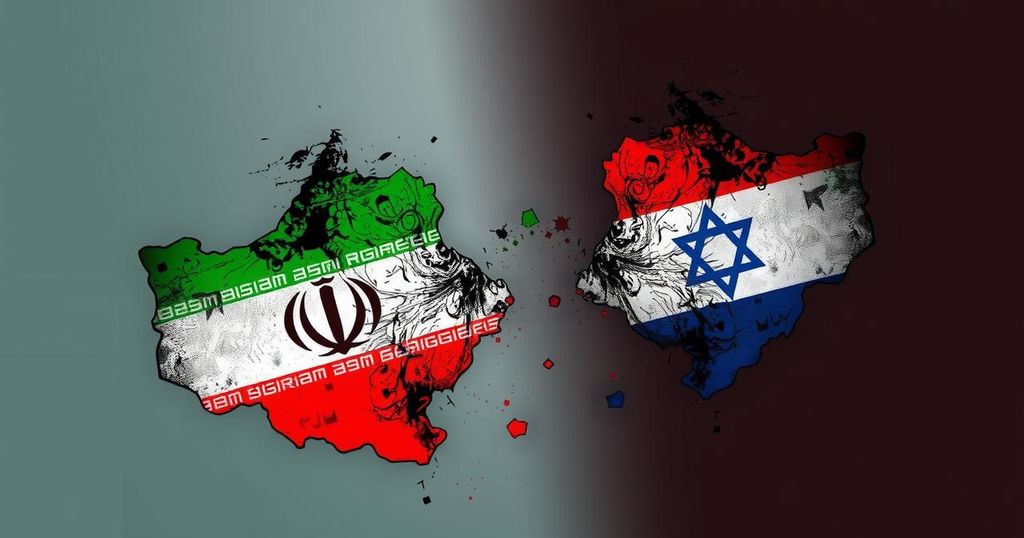Iran’s Accusations Against the U.S. and Israel in the Syrian Conflict

Iran’s Foreign Minister alleges U.S. and Israeli coordination with terrorist groups to destabilize Syria amidst a backdrop of Syrian opposition advances in late November. He highlights the timing of HTS’s attacks post-ceasefire in Lebanon as evidence of this conspiracy. Iran seeks to bolster its support for the Syrian regime while framing its military interventions in Syria as responses to foreign threats, particularly influencing regional dynamics with Turkey and Russia.
In late November, Iran was taken aback by the rapid advancements made by Syrian opposition groups led by Hayat Tahrir al-Sham (HTS) in Idlib province, as they captured Aleppo from Syrian government forces. Following this, the opposition appeared poised to seize Hama as well, but their progress has since stalled. In response to the shifting dynamics, Iran has united efforts in support of the Syrian regime, suggesting that the developments are indicative of a broader conspiracy involving the United States and Israel to destabilize Syria.
Iran’s Foreign Minister, Abbas Araghchi, asserted that the situations in Syria are evidence of coordinated efforts between what he termed the Zionist regime, the U.S., and terrorist groups to undermine the country. During a televised interview, he remarked that recent attacks, particularly on Aleppo, were part of a “plot” orchestrated by these foreign powers, a claim he supports by referencing the ceasefire in Lebanon preceding these hostilities. Araghchi emphasized that this timing demonstrates a strategic alignment among these actors.
The Iranian narrative suggests that as the regime focused its attention on the Israel-Hezbollah conflict, HTS capitalized on the perceived vulnerability created by the ceasefire to launch their offensive in northern Syria. Despite this theory, evidence supporting Iran’s claims of U.S. and Israeli complicity is lacking. On the contrary, Israeli authorities may view the chaos in Syria as a potential threat, primarily because such instability could empower Iranian-backed factions within the region.
Iran’s rhetoric also serves its domestic and geopolitical agenda by justifying its military interventions and amassing support from allies like Turkey and Russia. Tehran is keen on expelling U.S. forces from eastern Syria, engaged in operations against ISIS with the Syrian Democratic Forces. The Iranian regime seeks to leverage the current conflict against HTS to forge a collaborative front with Ankara, which similarly perceives the events as an opportunity to mobilize against Kurdish groups in the area.
Iran further articulated its commitment to supporting the Syrian government during discussions involving Iranian officials and Syrian President Bashar al-Assad. Tehran’s promise of ongoing support was underscored by Araghchi’s assertion of a renewed commitment to diplomatic engagements, as evidenced by anticipated meetings involving Iran, Russia, and Turkey to bolster their collaborative frameworks in Syria.
The Syrian conflict has been marked by complex and shifting alliances, with various international stakeholders vying for influence. Iran has positioned itself as a staunch ally of the Syrian regime, actively supporting it against opposition forces. The resurgence of HTS in Syria has caused alarm for Iran, compelling it to call for solidarity with the Syrian government while simultaneously blaming external forces—the U.S. and Israel—for the instability in the region. This alleged conspiracy aligns with Iran’s broader strategy of framing its actions as necessary responses to foreign intervention.
In summary, Iran’s claims regarding U.S. and Israeli involvement in the Syrian conflict can be viewed as efforts to consolidate its influence and justify its military presence in the region. By advocating a narrative of external plots, Iran aims to strengthen its alliances with other regional powers and combat opposition forces. However, the lack of substantiated evidence for these claims raises questions about the legitimacy of Iran’s assertions, highlighting the intricate geopolitical dynamics at play in the Syrian conflict.
Original Source: www.jpost.com








